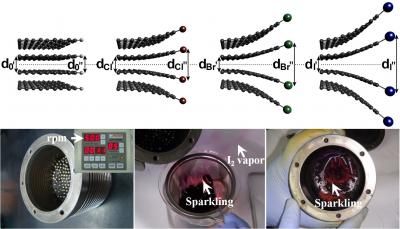Chemophobia shouldn't be on the menu
New Dartmouth study finds many people unnecessarily fear low amounts of chemicals in their food
When it comes to what's for dinner – or breakfast and lunch for that matter-- many people suffer from chemophobia, an irrational fear of natural and synthetic chemicals that pose no risk to our health, a Dartmouth study finds.
Chemistry Professor Gordon Gribble, whose paper appears in the journal Food Security, argues that low doses of chemicals in modern food are inherent, typically harmless and often highly beneficial. He says most people don't know they are routinely exposed to a host of compounds in non-toxic concentrations in what they eat and drink each day. Even the air they breathe – whether in big cities or the countryside -- is full of naturally occurring and synthetic chemicals, including wine "aroma," flower "bouquet," perfume "fragrance," bakery "smell" and "garbage "stench."
Gribble cites the example of halogen compounds, which many people -- even many scientists -- assume are all uniquely man-made poisons found in dioxins, polychlorinated biphenyls (PCBs) and the pesticide DDT. But he says thousands of halogen compounds are, in fact, part of our natural environment made by protists, plants, animals and even humans for their own defensive purposes. Some species even use organohalogens, which contain carbon along with chlorine, bromine, iodine or fluorine, to mount chemical offensives against encroaching competitors.
Gribble says food regulators should focus not on pesticides, antibiotics and dioxins but on pathogens, bacteria and fungi, which each year cause millions of cases of food-borne infections in the United States that result in hospitalization or death. He recommends people eat a diverse diet to minimize their exposure to harmful concentrations of chemicals.
"Our food is peppered with natural compounds such as organohalogens, dioxins, aflatoxins and many others," he says. "Food is chemistry beyond our immediate control, including those synthetic chemicals that are deemed to be artificial and should not be found in 'safe' food."
Gribble says chemophobia started in 1962 with publication of Rachel Carson's "Silent Spring" and was reinforced by major chemical accidents, such as those in Times Beach, Missouri; Love Canal, New York; and Bhopal, India. "The word 'chemical' became a dirty word despite the fact that everything we see, smell and touch is chemical," he says. "While chemical scares invariably appear on the front page, the follow-up stories that often refute the initial scares never do."
Other news from the department science

Get the chemical industry in your inbox
By submitting this form you agree that LUMITOS AG will send you the newsletter(s) selected above by email. Your data will not be passed on to third parties. Your data will be stored and processed in accordance with our data protection regulations. LUMITOS may contact you by email for the purpose of advertising or market and opinion surveys. You can revoke your consent at any time without giving reasons to LUMITOS AG, Ernst-Augustin-Str. 2, 12489 Berlin, Germany or by e-mail at revoke@lumitos.com with effect for the future. In addition, each email contains a link to unsubscribe from the corresponding newsletter.



















































